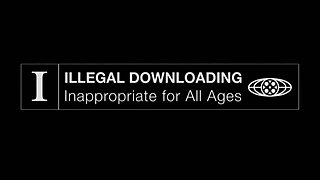
The Compact Cassette, also commonly called a cassette tape, audio cassette, or simply tape or cassette, is an analog magnetic tape recording format for audio recording and playback. Invented by Lou Ottens and his team at the Dutch company Philips, the Compact Cassette was released in August 1963. Compact Cassettes come in two forms, either containing content as a prerecorded cassette (Musicassette), or as a fully recordable "blank" cassette. Both forms have two sides and are reversible by the user. Although other tape cassette formats have also existed—for example the Microcassette—the generic term cassette tape is normally used to refer to the Compact Cassette because of its ubiquity.

The 8-track tape is a magnetic-tape sound recording technology that was popular from the mid-1960s to the early 1980s, when the compact cassette, which pre-dated the 8-track system, surpassed it in popularity for pre-recorded music.

Sub Pop is a record label founded in 1986 by Bruce Pavitt and Jonathan Poneman. Sub Pop achieved fame in the early 1990s for signing Seattle bands such as Nirvana, Soundgarden, and Mudhoney, central players in the grunge movement. They are often credited with helping popularize grunge music. The label's roster includes Fleet Foxes, Tad (band), Beach House, The Postal Service, Sleater-Kinney, Flight of the Conchords, Foals, Blitzen Trapper, Father John Misty, clipping., Shabazz Palaces, Weyes Blood, Guerilla Toss, Bully, Low, METZ, Rolling Blackouts Coastal Fever, Kiwi Jr., TV Priest and The Shins. In 1995, the owners of Sub Pop sold a 49% stake of the label to the Warner Music Group.
A private copying levy is a government-mandated scheme in which a special tax or levy is charged on purchases of recordable media. Such taxes are in place in various countries and the income is typically allocated to the developers of "content".

The International Federation of the Phonographic Industry (IFPI) is the organisation that represents the interests of the recording industry worldwide. It is a non-profit members' organisation registered in Switzerland and founded in Italy in 1933 by Francesco Braga. It operates a secretariat based in London, with regional offices in Brussels, Hong Kong, Miami, Abu Dhabi, Singapore and Nairobi.

A bootleg recording is an audio or video recording of a performance not officially released by the artist or under other legal authority. Making and distributing such recordings is known as bootlegging. Recordings may be copied and traded among fans without financial exchange, but some bootleggers have sold recordings for profit, sometimes by adding professional-quality sound engineering and packaging to the raw material. Bootlegs usually consist of unreleased studio recordings, live performances or interviews without the quality control of official releases.

New Traditionalists is the fourth studio album by the American new wave band Devo, released in 1981 by Warner Bros. Records. The album was recorded over a period of four months between December 1980 and April 1981 at the Power Station in Manhattan, New York City. It features the minor hits "Through Being Cool" and "Beautiful World".

Total Devo is the seventh studio album by American new wave band Devo, released in 1988 by Enigma Records. "Disco Dancer" hit No. 45 on Billboard's Hot Dance Club Play chart for the week of September 3, 1988.
Richard Youngs is an English musician based in Glasgow since the early 1990s. His catalogue of solo and collaborative work formally begins with Advent, first issued in 1990. He plays many instruments, most commonly choosing the guitar, but he has been known to use other instruments including the shakuhachi, accordion, theremin, dulcimer, a home-made synthesizer and even a motorway bridge. He also released an album which was entirely a cappella.

Don't Copy That Floppy was an anti-copyright infringement campaign run by the Software Publishers Association (SPA) beginning in 1992.

British Phonographic Industry (BPI) is the British recorded music industry's Trade association. It runs the BRIT Awards; is home to the Mercury Prize; co-owns the Official Charts Company and National Album Day with the Entertainment Retailers Association; and awards UK music sales through the BRIT Certified Awards.
The Federation Against Copyright Theft (FACT) is a British organisation established in 1983 to protect and represent the interests of its members' intellectual property (IP). FACT also investigates fraud and cybercrime, and provides global due diligence services to support citizenship investment and trade, business, financial and legal compliance.

"You can click, but you can't hide" is an advertising campaign run jointly by several international associations, most notably the Motion Picture Association of America and the GVU, as part of the larger "Respect Copyrights" campaign against peer-to-peer file sharing of motion pictures. The associations have long alleged that Internet file sharing, or maintaining a file sharing tracker, network or search engine, constitutes copyright infringement since the practice hurts their revenues.
Tape trading is an unofficial method of distribution of musical or video content through the postal system, which was prominent in the 1980s and 1990s. Although most commonly used to distribute and publicize limited-release musical demo tapes in underground musical genres such as punk, hardcore, and extreme metal, the system has also been used to distribute bootleg recordings of live concerts, recordings of radio broadcasts, original radio-style programming by amateur broadcasters, and videotapes of underground films and pornography.

"Piracy is theft" was a slogan used by UK non-profit organization FAST. It was first used in the 1980s and has since then been used by other similar organisations such as MPAA. It has also been used as a statement, although that has been challenged as being inaccurate.

"You Wouldn't Steal a Car" is the first sentence of a public service announcement that debuted on July 27, 2004, which was part of the anti-copyright infringement campaign "Piracy. It's a crime." It was created by the Federation Against Copyright Theft and the Motion Picture Association of America in cooperation with the Intellectual Property Office of Singapore, and appeared in theaters internationally from 2004 until 2007, and on many commercial DVDs during the same period as a clip before the main menu or other previews appear, as either an unskippable or skippable video.
International Federation of the Phonographic Industry Greece, or simply IFPI Greece, is the Greek branch of the International Federation of the Phonographic Industry (IFPI) and is the official charts provider and recording sales certification body for Greece. The association compiles and publishes a Top 75 album sales chart. The chart is sponsored by Cyta Hellas.
The Indian Music Industry (IMI) is a trust that represents the recording industry distributors in India. It was founded on February 28, 1936, as Indian Phonographic Industry (IPI). It is the 2nd oldest music industry organization in the world that was involved in protecting copyrights of music producers and supporting growth of music entertainment industry. In 1994, it was renamed as Indian Music Industry (IMI) and represented India at the International Federation of the Phonographic Industry (IFPI). It is also registered with the West Bengal Societies Registration Act. All major music labels in India are part of this association.
File sharing in the United Kingdom relates to the distribution of digital media in that country. In 2010, there were over 18.3 million households connected to the Internet in the United Kingdom, with 63% of these having a broadband connection. There are also many public Internet access points such as public libraries and Internet cafes.

"C·30 C·60 C·90 Go" is the debut single by English new wave band Bow Wow Wow. It was written by Malcolm McLaren, Matthew Ashman, Leigh Gorman and Dave Barbarossa. Originally only released on cassette, it was the world's first-ever cassette single.















